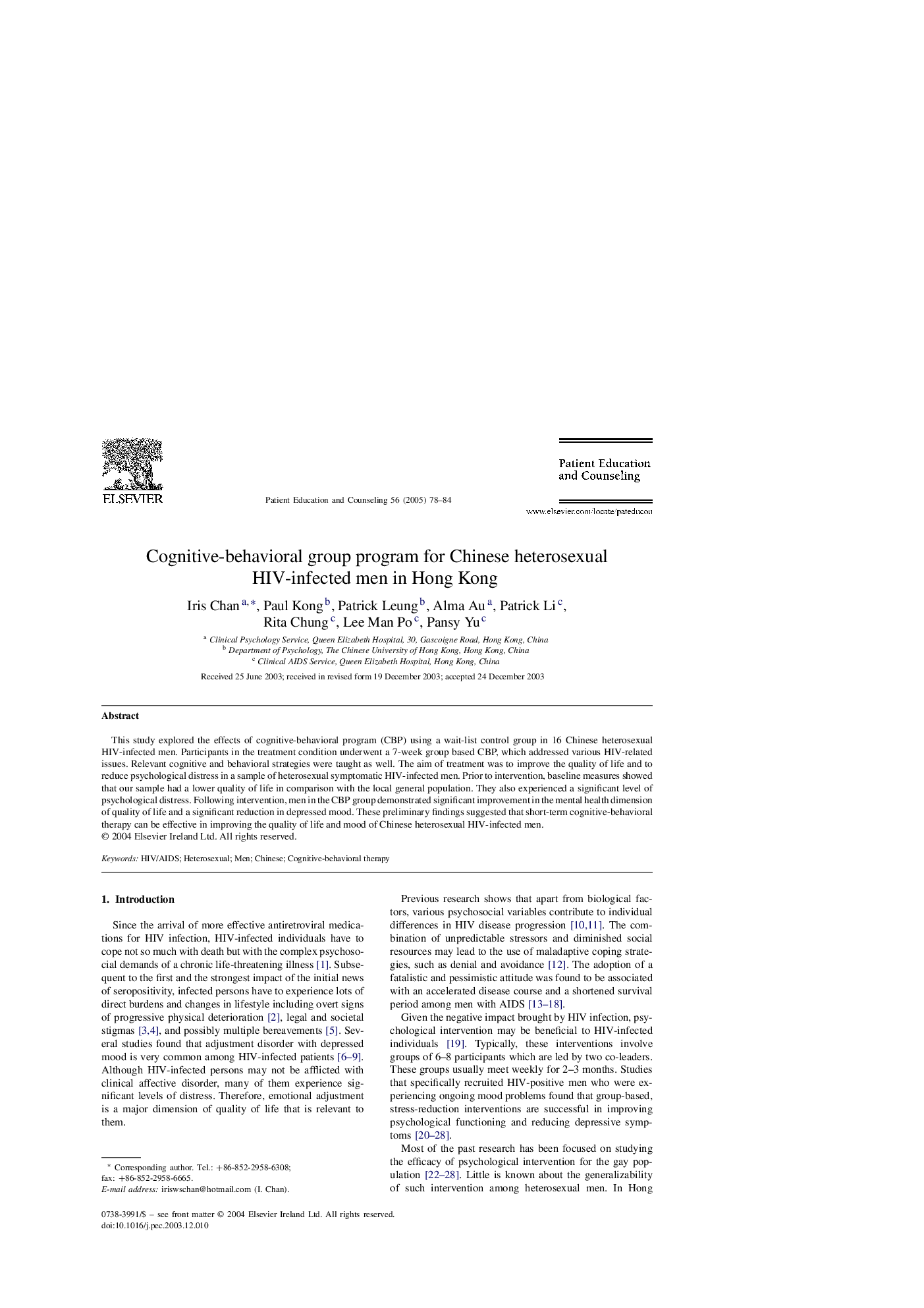| Article ID | Journal | Published Year | Pages | File Type |
|---|---|---|---|---|
| 9301955 | Patient Education and Counseling | 2005 | 7 Pages |
Abstract
This study explored the effects of cognitive-behavioral program (CBP) using a wait-list control group in 16 Chinese heterosexual HIV-infected men. Participants in the treatment condition underwent a 7-week group based CBP, which addressed various HIV-related issues. Relevant cognitive and behavioral strategies were taught as well. The aim of treatment was to improve the quality of life and to reduce psychological distress in a sample of heterosexual symptomatic HIV-infected men. Prior to intervention, baseline measures showed that our sample had a lower quality of life in comparison with the local general population. They also experienced a significant level of psychological distress. Following intervention, men in the CBP group demonstrated significant improvement in the mental health dimension of quality of life and a significant reduction in depressed mood. These preliminary findings suggested that short-term cognitive-behavioral therapy can be effective in improving the quality of life and mood of Chinese heterosexual HIV-infected men.
Related Topics
Health Sciences
Medicine and Dentistry
Medicine and Dentistry (General)
Authors
Iris Chan, Paul Kong, Patrick Leung, Alma Au, Patrick Li, Rita Chung, Lee Man Po, Pansy Yu,
